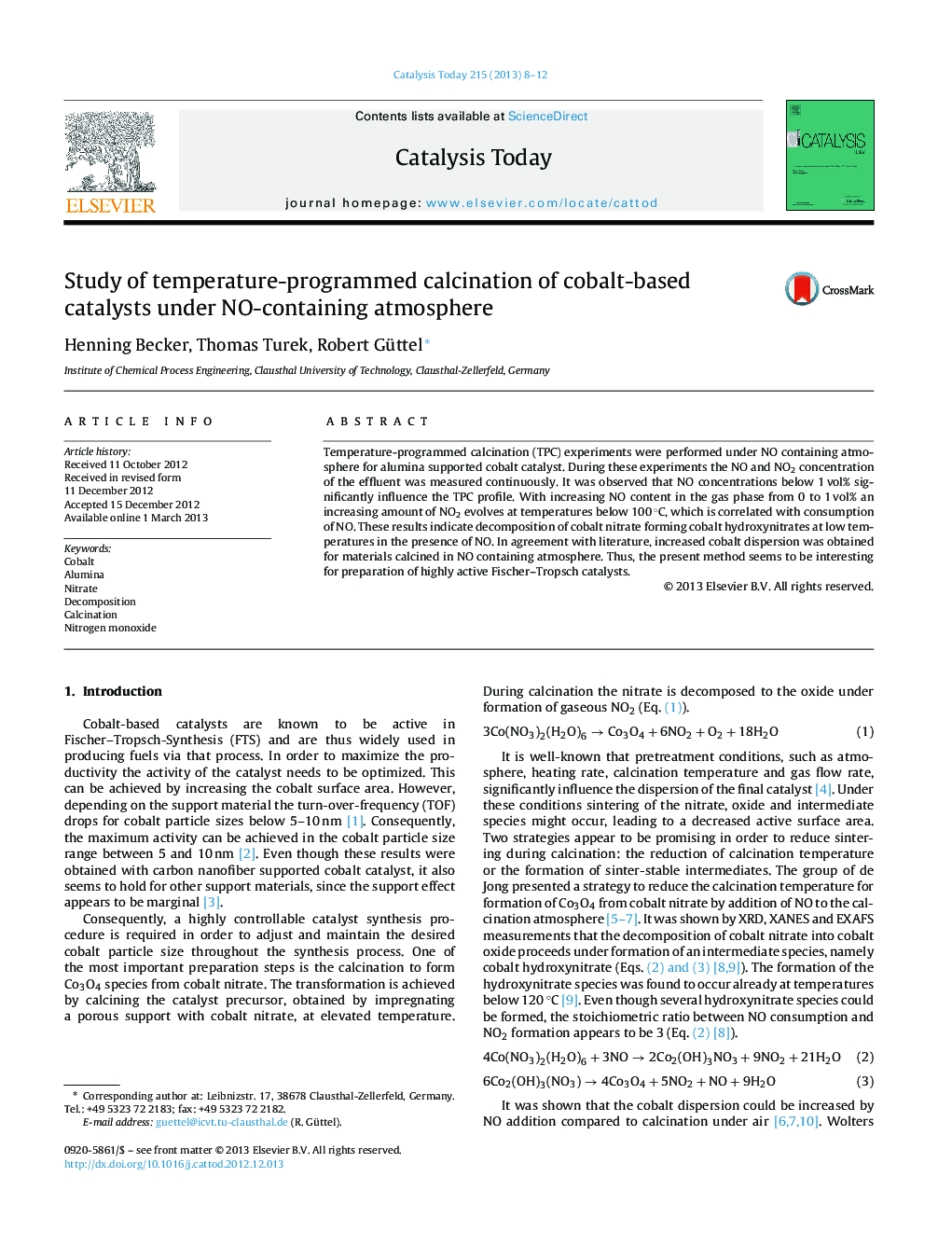| Article ID | Journal | Published Year | Pages | File Type |
|---|---|---|---|---|
| 54612 | Catalysis Today | 2013 | 5 Pages |
Temperature-programmed calcination (TPC) experiments were performed under NO containing atmosphere for alumina supported cobalt catalyst. During these experiments the NO and NO2 concentration of the effluent was measured continuously. It was observed that NO concentrations below 1 vol% significantly influence the TPC profile. With increasing NO content in the gas phase from 0 to 1 vol% an increasing amount of NO2 evolves at temperatures below 100 °C, which is correlated with consumption of NO. These results indicate decomposition of cobalt nitrate forming cobalt hydroxynitrates at low temperatures in the presence of NO. In agreement with literature, increased cobalt dispersion was obtained for materials calcined in NO containing atmosphere. Thus, the present method seems to be interesting for preparation of highly active Fischer–Tropsch catalysts.
Graphical abstractFigure optionsDownload full-size imageDownload high-quality image (284 K)Download as PowerPoint slideHighlights► The method of temperature programmed calcination is presented. ► Thermal decomposition of cobalt nitrate supported on alumina was studied. ► Effect of NO partial pressure during calcination was investigated. ► The NO2 formation rates indicate formation of intermediate species below 100 °C. ► The intermediate species are most probably cobalt hydroxynitrates.
